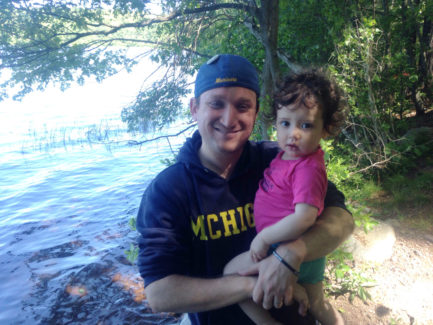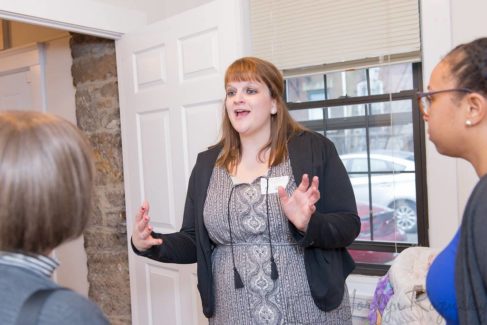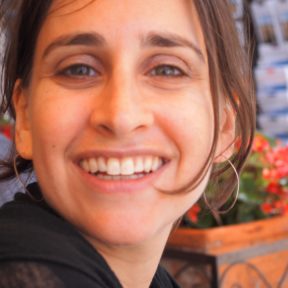
Hello Dan! Tell us about what you’re up to these days.
Absolutely! So I left my job of ten years, which was actually my JOIN placement, at Dorchester Bay Youth Force, doing youth organizing work. I left back in the end of June, and I’ve been doing a variety of projects. The one that’s been most on my mind and taking up most of my time has been a project working with longtime JOIN friend and trainer Rabbi David Jaffe, who wrote a book called Changing the World from the Inside Out, looking at Jewish spirituality and social justice, and how those two things work together. I’ve been working with him since the beginning of September, taking the book and trying to bring it into the world, doing some strategizing, relationship building, designing some trainings around it, and some fundraising to take the book and mold it into a larger project.
How did you discover JOIN?
Let’s see, how did I find the Fellowship? I heard about it from a variety of sources just growing up in the Jewish community in Boston. I think maybe even my mom, she would read the Jewish Advocate, and saw an article about it a long time ago. At the time I wasn’t interested, I moved to New York after college, and I think then I connected to Lauren Herman at the Workmen’s Circle – which was her JOIN placement I believe – and she mentioned it to me. Then I was planning to move back to Boston and needed something to do, and I looked into it and ended up applying. That was my first connection to JOI (at the time), and as I mentioned my placement was Dorchester Bay, at the program there called Youth Force – this was 2007. I was 27, on the older end, I think the oldest person in my cohort that year.
Did that impact your experience at all?
Yeah, I think it did. You know, it’s hard to tell. I got so much out of the Fellowship, and I’m sure a lot of people do, so I don’t think that’s so unique. But maybe what I got out of it was shaped by the fact that I had some experience, I had taught in a public school in Brooklyn for three years, and that was a really really challenging experience for many reasons. I had that as my background going into my JOIN year. So I’m sure that particular experience, and whatever growth or maturity I gained through it, shaped the way I was initially attracted to community organizing.
Is there a story or experience from your Fellowship that has stayed with you?
For sure, yeah. This is the story I usually tell about one of the most meaningful parts of my year. When Meir trained – early in the year, I think it was October – trained on how to share our story, it was a deeply transformative experience for me. I think, first and foremost, because it really made my story into something that was important, something that ought to be developed. I’d come into social justice work not really thinking that my story was worthwhile or legitimate or important, and it was just really empowering for me to center myself and my story, and then to learn the craft of developing a story and sharing a story in a one on one meeting, that was a really powerful experience. And that still absolutely sticks with me, ten years later, as I continue to do one on ones for my current project, how am I sharing my story and how am I getting people to relate to me. That was really meaningful.
Lastly, is there a piece of organizing wisdom and / or a Jewish teaching that inspires you?
There’s something from my current work, a Jewish concept, of shleimut, or wholeness. And I’ve been thinking a lot about what does it mean for us to bring our full selves to our lives, and then more specifically to our social justice work. And I think a lot of times what happens is we bifurcate ourselves and say ‘OK you’re a spiritual person in synagogue, and you’re an intellectual person in the classroom,’ and just divide ourselves. And I’m really thinking a lot about how that’s not the healthiest way to live, and how can we develop a sense of wholeness, and then bring our whole selves. And what sort of environments encourage that and don’t encourage that, and what are some skills. I think that’s why I love David’s book. What are some skills that we can learn to develop a sense of wholeness and then bring our whole selves into the world.
Dan Gelbtuch is a community organizer and Jewish Organizing Fellowship alum ’07-08. Learn more about the Jewish Organizing Fellowship.








